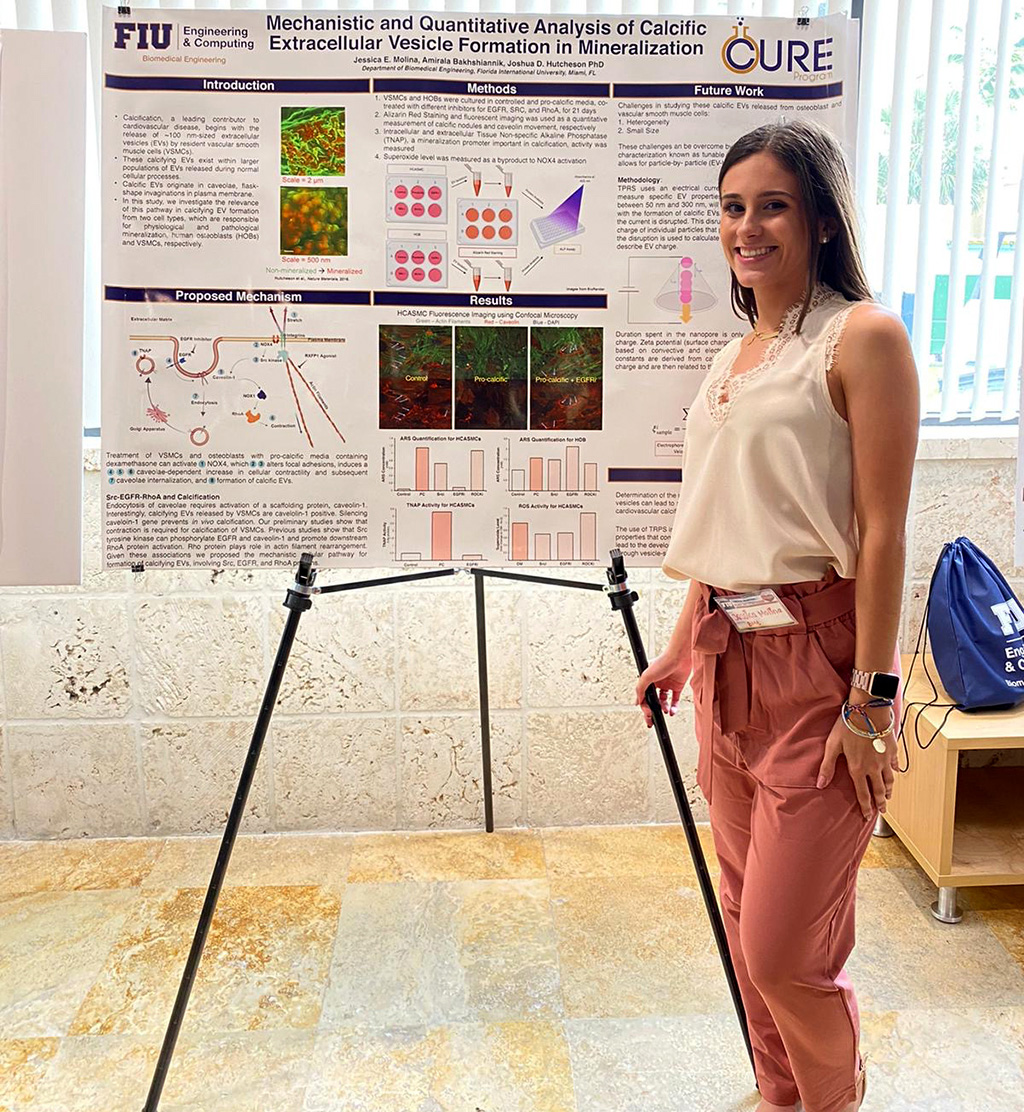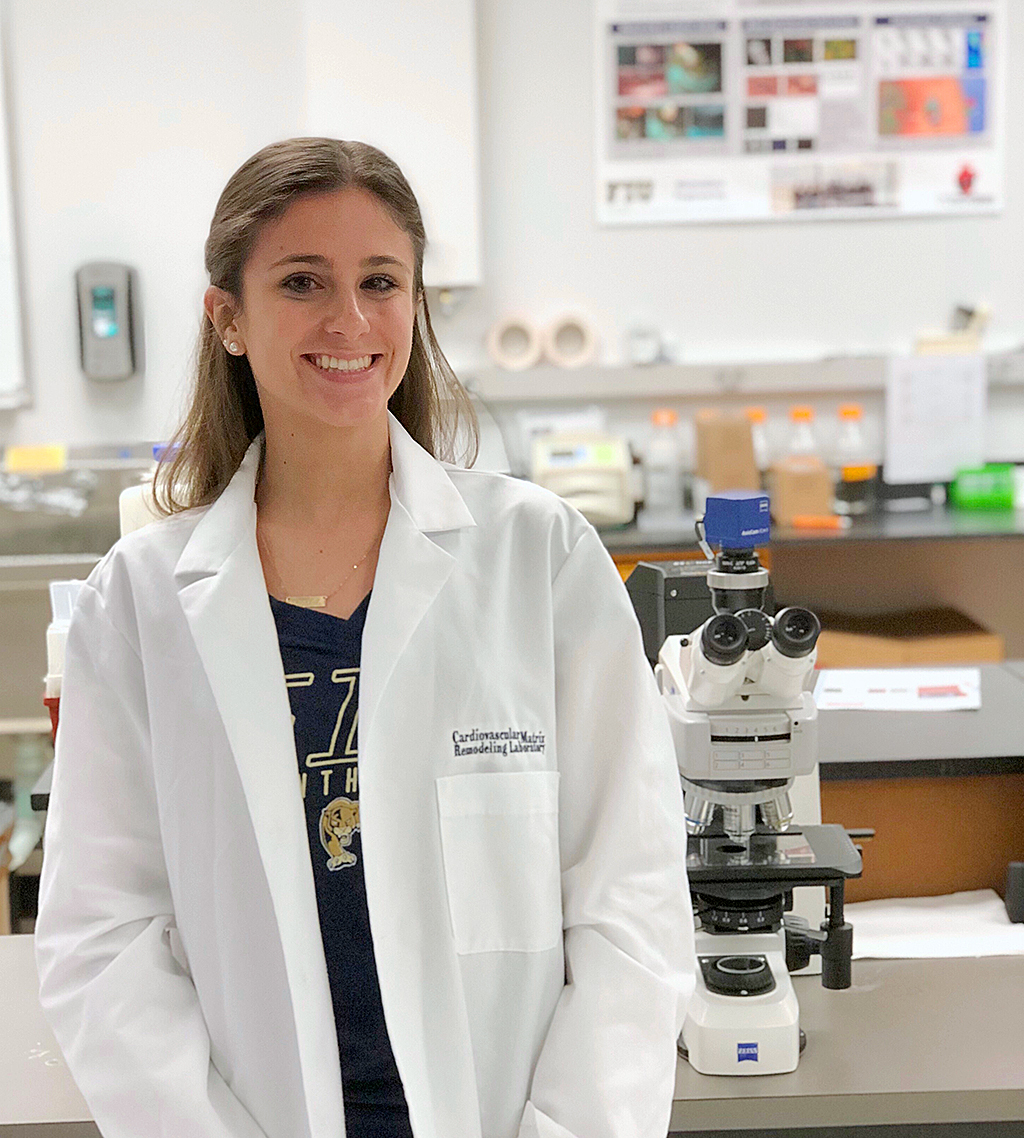
During her time here at FIU, Jessica Molina has grown into an academically-driven leader in STEM. An early-childhood diagnosis of a rare disease, Osteogenesis Imperfecta, drove her passion for STEM and, ultimately, her motivation to contribute to the scientific community. She began her research during her freshman year of college at the Cardiovascular Matrix Remodeling Laboratory (CMRL) under Joshua Hutcheson, an assistant professor in the Department of Biomedical Engineering, who investigates the mechanisms behind pathological cardiovascular calcification.
Jessica will soon complete the three-year Coulter Undergraduate Research Excellence Program (CURE) at FIU, becoming the first fellow of the novel program. Her most notable research endeavors include an oral presentation of her research at the national Biomedical Engineering Society (BMES) conference in 2018 and a soon-to-be-published book chapter with her lab under Springer.

Jessica Molina
How does it feel to be recognized as BME outstanding spring 2020 student?
I am both immensely honored and humbled to be recognized by FIU in this way. I would like to thank all the professors and mentors I had that inspired me to obtain, if even just fundamental, knowledge in all the different areas of BME explored within the department. I was truly inspired by the level of expertise from the FIU BME faculty and I hope to one day reach this level as well.

Why do you feel passionate about Biomedical Engineering?
I believe that biomedical engineering will continue to pave the way for diagnostic and therapeutic options that will revolutionize medicine. Engineering principles still have so much possibilities to be explored and their applications in medical practice will be endless. I feel that my knowledge in biomedical engineering will prove to be most beneficial in my future endeavors to pursue a degree in medicine.
How will you like to help the community with your profession and knowledge?
I would like to continue my education in biomedical engineering to hopefully understand the pathophysiology and mechanics of disease progression and help fill the informational void that exists in this area. Specifically, I have taken an acute interest in rare diseases that do not receive the same attention from the research community due to lack of immediate response needed. I had initially begun FIU with the sole purpose of going to medical school, but I began to realize the importance of research needed to fulfill my true career goals.
What would you say to the women that decide not to study BME because they are told science is not for girls?
I have met some of the most amazing women during my time here at FIU that have inspired me in my studies. As a dance teacher and one of my favorite questions is to ask my class is what they would like to be when they grow up. My eyes light up when any one of them mentions a STEM-related career.
I believe the idea that engineering is a primarily male field will eventually be erased from conversation, and I strongly believe that the reason for this would be the STEM outreach activities that colleges such as FIU participate in. Through my experiences of STEM Outreach activities at local schools, you can easily see the confidence these girls are being taught from such a young age. Through these activities girls and boys alike will be inspired to continue their education and pursue such degrees like engineering.

How has FIU supported you into achieving your goals in the path of becoming a Biomedical Engineer professional?
Through FIU I have been able to fully immerse myself in the biomedical engineering field through research, leadership, and service. The CURE Program allowed me to initiate my research career under the most intelligent and dedicated mentor I could have asked for.
Involvement in different student lead chapters allowed
